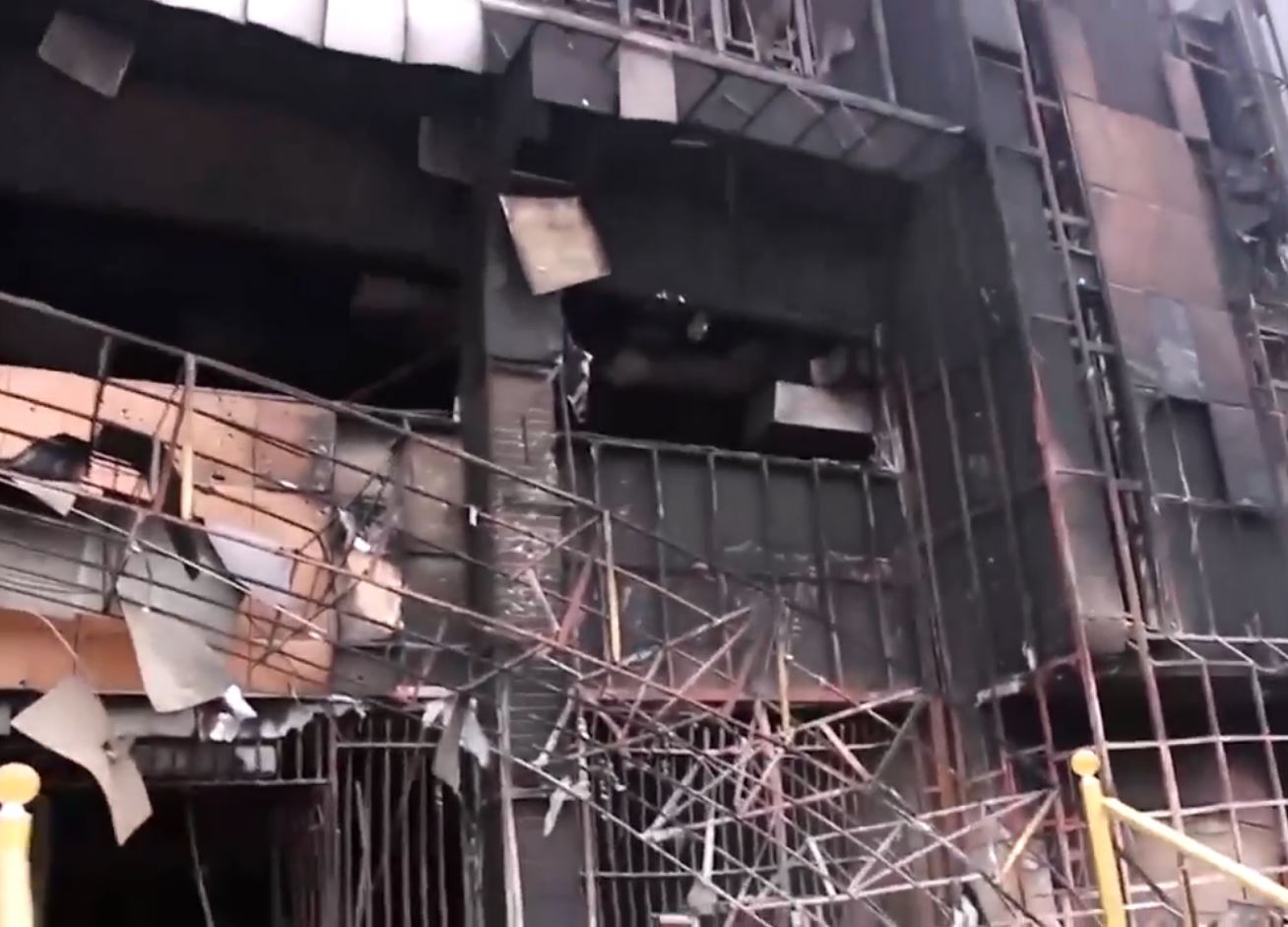So You Think Your Library Has Problems...
- by Michael Stillman

Burned out front of the Mosul University Library.
As libraries in the West fret over vexing issues such as funding limitations and changing usage patterns, it's sobering to remember how horrifically bad the situation can be in lands torn by war. Iraqi forces recently recaptured the city of Mosul, or at least the part of it which housed the university. The University of Mosul, one of Iraq's leading centers of education, was taken over by ISIS a few years back. Naturally, that included its library. To say they trashed the place would be a spectacular understatement.
ISIS holds the learning of anything other than their fanatic religious views in contempt. Once they seized the university, most of its teaching came to a halt. Only medical courses were allowed to continue. Laboratories were turned into bomb factories. It is not clear what they did with the university library immediately, though ISIS made news a while back when they released videos of their burning books taken from the city library, and using sledgehammers to destroy relics taken from Mosul's museum. What is known is what became of the university library by the time they were driven off.
The university suffered particular damage during the final assault for the city's recapture. Gunfights erupted in its buildings, firebombs were heaved, and bombing from the sky combined to leave a swath of destruction covering the entire grounds. The result was a library and books mostly turned to ashes. Photographs taken inside make one wonder if anything is recoverable. Reuters photographers recently captured the extensive damage. Their chilling photographs can be seen here: www.reuters.com/news/picture/whats-left-of-mosuls-university?articleId=USRTX2YZ25.
As bad as the physical damage is, the human carnage is worse yet. Reportedly, dozens of instructors were killed after ISIS took over the city. Still, officials have spoken bravely of reopening the university and setting about the job of rebuilding the site. This isn't the first time they have faced this task. Earlier battles, including those during the Gulf War, damaged the facilities, though nothing on this magnitude before.
In somewhat related news, police in Denmark report that cultural items looted from Syria by ISIS are being offered for sale in Denmark. Among them is a very old copy copy of the Koran. At least, it is purported to be. ISIS began its rampage by destroying books and other antiquarian items, but quickly learned that if instead of destroying them, as their alleged "principles" demand, they offered them for sale in the West, they could exchange those principles for cash. They quickly created a large black market for valuable ancient artifacts.
However, the artifacts created a second illicit trade – non-ISIS members creating and selling fakes. It is hard to feel sympathy for those duped by the imitators, who think they are in effect stealing someone else's stolen artifacts for pennies on the dollar. In the case of the Koran offered, Danish officials believe it is most likely a fake.